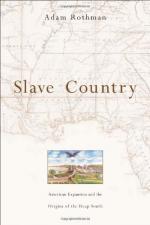|
This section contains 592 words (approx. 2 pages at 300 words per page) |

|
Technology and Democracy.
The technological development of American society in the first half of the nineteenth century inspired many newspapermen to idealize the role of communication and predict a new and glorious future for individuals as well as nations. New York editors such as James Gordon Bennett and Horace Greeley conceived of the newspaper as a force for good in America, promoting moral and civic virtue in its readers. In Massachusetts an idealistic editor also believed in the press, placing the newspaper and the rapid advancements in communication and transportation at the center of a new vision for humankind. Writing at the beginning of 1851, Samuel Bowles III, editor of the Springfield Republican, predicted a new community spirit based on new forms of human interaction. As Bowles put it, "The railroad car, the steamboat, and the magnetic telegraph, have made neighborhood among...
|
This section contains 592 words (approx. 2 pages at 300 words per page) |

|




